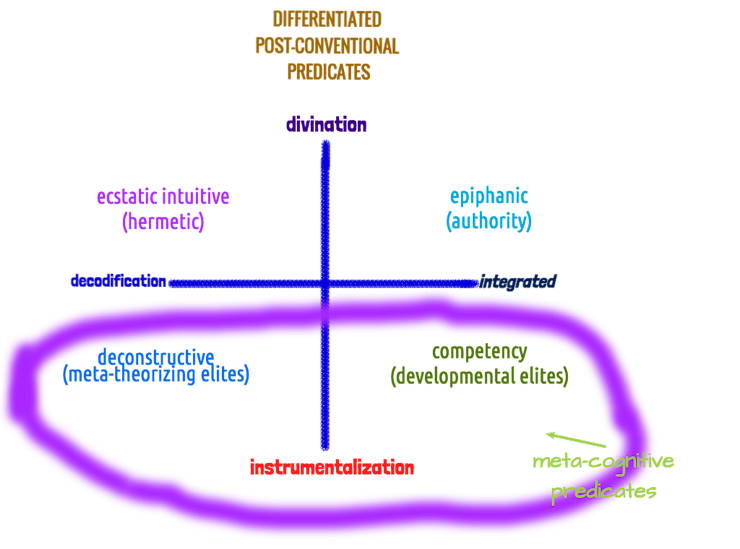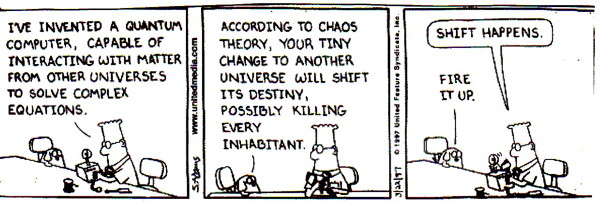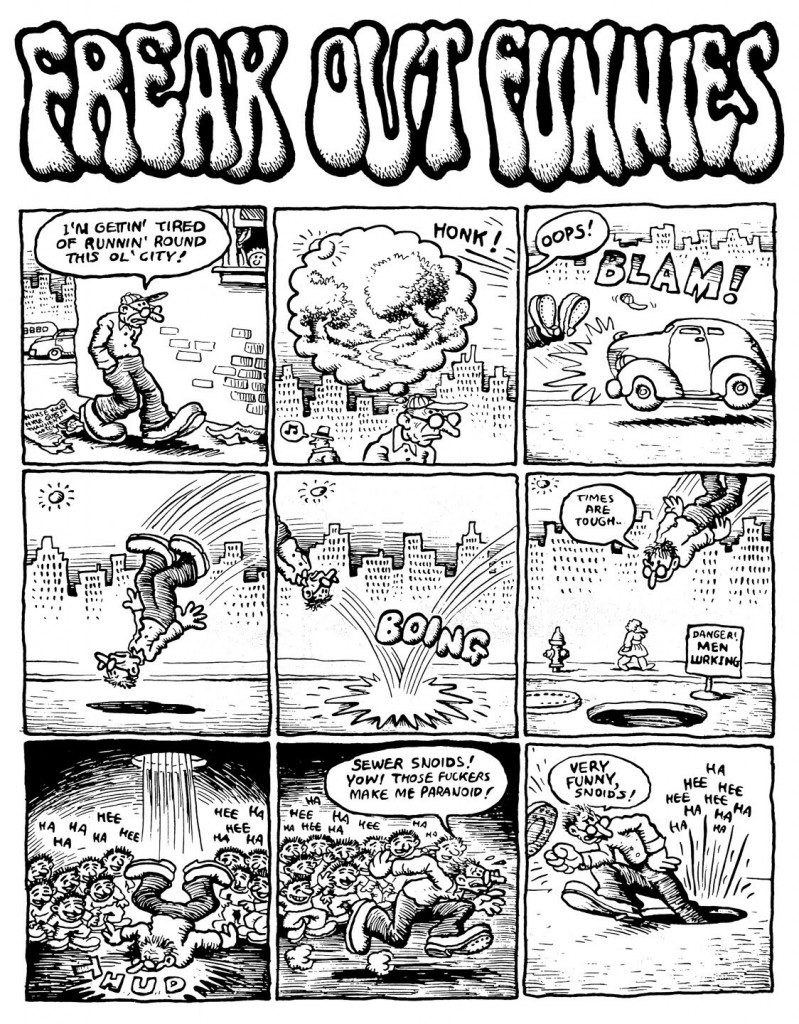
A hallmark of sincere and authentic and audacious post-conventionality could be: daring.
This would go along with understanding that the call beyond conventions promotes radical, storming kinds of engagements with one’s own self, with the world, and with other people.
But, the “could be” is my hedging as against the conventions of the theorization of the post-conventional. Affirmative Post-Conventional themes are, in the main, elementally meta-cognitive predicates, and these themes also reflect a kind of instrumental positivism. Some lip service is paid to the varieties of deconstruction, although, there is no deconstructive literature to be found in the field’s small, (and revealingly tidy,) body of work.
The post-conventional move into epiphanic knowledge–which is somewhat covered under the fuzzy rubric given by Ken Wilber’s causal level, the so-called path of sages–is also the move into post Post-Conventional being. The other move is not found in Post-Conventional theory , (or Wilberian theory.) There are no lively treatments of anything functionally equivalent to ecstatic intuition, or equivalent to its applications.
Ecstatic Intuition is: spontaneous development due to spontaneous insight. Its most well-known application is given by the conception of synchronicity in the Analytic Psychology. squareONE’s applications similarly provide concrete enactive engagements with procedures which elevate novel data into the learner’s field for the purpose, instrumentally viewed, of spontaneous decodification and “instant self-discovery”
What I termed twenty years ago, ecstatic organization, shadows and inflects the problem of daring. Another feature of this problem (of daring,) is recovered by extracting the direct polarity: competency <—> ecstatic intuition from the array.
My sense is that the scientism implicit in the meta-cognitive bracket helps secure the means, and the developmental applications, which all aim to build practical post-conventional capabilities. Whereas, what I term the meta-enactive bracket, (or what might be viewed as the interface, dissolves scientism, is spontaneous and oft spontaneously messy, and is altogether forcefully disposed toward post developmental, or non developmental, modes of being and being-in-response. Ecstatic organization and ecstatic intuition is impractical, (and may even be anti-fragile per Nassim.)
If you, reader, are able to sense this bracket’s dynamic quotients of: the irrational, of eros, of soulmaking, of Bateson’s conception of mindedness, and, sense also its more direct route away from the neocortex and intentionality, you’ll also recognize I really meant it when I first spoke of daring.
Lastly, the scope of unlearning, of learning to unlearn, is discoverable in the daring foray to be made through the Coincidentia Oppositorum, into the Oppositorum. This means going in the direction away from what you know, how you know it, and, as dear Desse put it many years ago, also means going in the direction away from how you know it is that you know.






